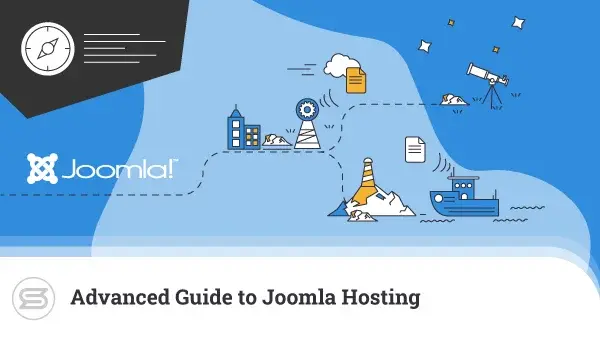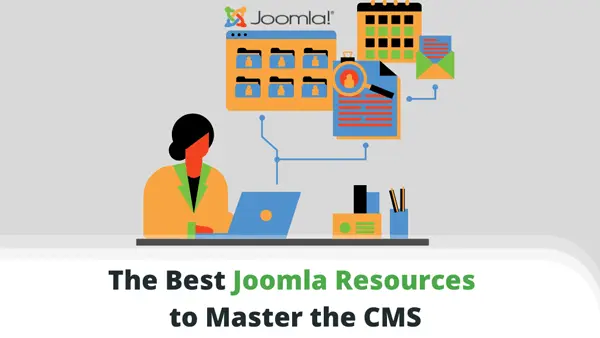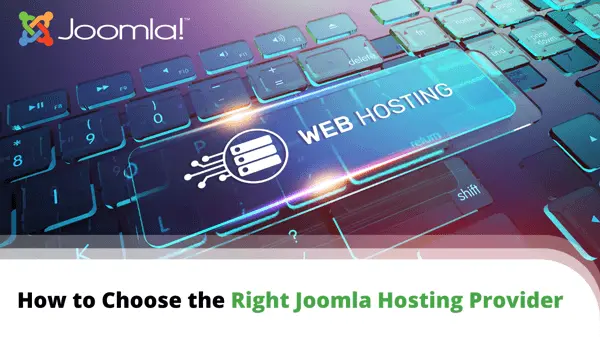Security is a top priority for Joomla users, and for good reason too. It’s not just about keeping your website data safe—it’s also about protecting your users and their personal information. As a content management system, Joomla is designed to keep your data and content secure out of the box.
But is that enough? Is it safe to use the app for a commercial project, for example?
Let’s learn more about the Joomla security options and see if it’s the right CMS for you.
What is Joomla CMS?
Joomla is a free and open-source content management system that makes it easy for you to create beautiful websites with minimal effort. It’s the perfect solution for those who want to build an online project but don’t have the time or technical know-how to do it themselves.
Joomla relies on a plugin architecture, with thousands of free and premium add-ons that help you change the look and feel of your web pages.
An Overview of Joomla Security Features
Joomla offers plenty of tools when it comes to keeping your website safe and secure. Let’s look at some of it’s key features:
- Joomla has built-in support for two-factor authentication, which requires users to provide two bits of information to access a website. This helps ensure that only authorized users can access your pages.
- Joomla has a password strength meter to help you create stronger user passwords. This is essential as weak passwords are among the top methods for hackers to break into a website.
- Joomla also has a built-in anti-spam system to help keep your website free from malicious or unwanted content.
- Joomla gives you different tools for monitoring and auditing your website, so you can stay on top of any possible security problems.
That’s a pretty solid start. But there’s much more to Joomla’s security.

How Secure Is Joomla?
Joomla has a strong reputation for security compared to other CMS platforms like WordPress, Drupal, and Magento.
Features such as two-factor authentication, administrator privilege control, and secure password encryption make Joomla one of the most secure CMS platforms.
Joomla also works well with third-party security plugins and extensions, which lets users easily change their security settings. The platform is also updated regularly to fix possible issues and keep it up to date with the latest security technologies.
Joomla is also known for its user-friendly security controls, which help administrators manage their site security settings. The CMS supports a wide range of security protocols, allowing users to choose the ones that best fit their needs.
Comparison of Joomla Security to Other CMS Platforms
Joomla’s security system is thought to be one of the strongest and most reliable among CMS platforms.
WordPress, for example, is a popular CMS with a good security system, but it does not offer the same level of data encryption as Joomla.
Drupal is another popular CMS platform that takes security more seriously and has features like two-factor authentication and a secure file system. However, it still does not match the encryption offered by Joomla.
Security Features of Joomla
Joomla sites have multiple layers of security, including server-level security, database security, application-level security, and user-level security.
- Server-level security includes measures to protect the hosting environment from malicious attacks, such as firewalls, malware scanning, and regular security audits.
- Database-level security includes measures to protect the database from unauthorized access, such as using strong passwords, encrypting data, and regularly backing up the database.
- Application-level security includes measures to protect the application from malicious attacks, such as using the latest version of Joomla, utilizing secure passwords, and regularly updating Joomla and its components.
- User-level security includes measures to protect the user from malicious attacks, such as using strong passwords and two-factor authentication.

The Importance of Keeping Joomla Up-to-Date
The importance of keeping Joomla up-to-date cannot be overstated. Regular updates ensure that your site’s software is always in tune with the latest security standards..
New app versions give you new functionalities while fixing old bugs. Site building trends are dynamically changing and your CMS should reflect that..
Secondly, regular updates help keep your site secure by applying security patches. Those protect your site from malicious attacks and keep your data safe from all known threats.
Finally, regular updates ensure your Joomla site runs smoothly, as they fix any unexpected bugs or glitches.

The Impact of Third-party Extensions on Joomla Security
Adding third-party plugins and themes to Joomla can make a big difference for your website security. Even though these extensions can add features and functions to the site, they can also make it less secure if they are not carefully chosen, installed, and updated.
When selecting third-party extensions for your Joomla project, it’s important to make sure the code is safe and reliable. It is also essential to check if the extension is compatible with the version of Joomla you’re using.
After installing a third-party extension, it’s important to regularly monitor it for updates and security patches. This will ensure that any security vulnerabilities are addressed quickly and effectively.
Lastly, any third-party extension added to your Joomla site should be maintained regularly. This will help make sure the extension keeps working correctly in the long run.
| Common Threats to Joomla Security | Security Recommendations |
| SQL injections Cross-site scripting Brute force attacks Insecure file permissions Malware Unpatched vulnerabilities Unverified third-party extensions Weak passwords Weak server configurations | Keep Joomla Updated Use Secure Passwords Implement 2-Factor Authentication Use a Security Extension Use Secure Hosting Restrict File Permissions Disable File Editing Disable PHP File Upload Install a Firewall Enable HTTPS Limit login attempts |
Joomla Security with ScalaHosting
ScalaHosting is here to help you keep your Joomla website secure!
Choosing one of the VPS hosting plans, you can count on an isolated environment with dedicated server resources just for you. This account isolation has a great positive effect on your overall security as no breaches are possible through neighboring accounts on the same server (as in shared hosting).
Further more, all VPS plans come with SPanel and SShield – ScalaHosting’s very own platforms that help with hosting management and security.
To help you with any issues or questions with Joomla, you have 24/7 access to a trained support team, available via live chat and ticketing.
And just so we can back those claims with some hard evidence – Brian Teeman, one of Joomla’s co-founders, have already moved all his websites to Scala and shares his first-hand impressions.
Well, there you have it!
Joomla is a secure CMS platform and one of the most popular in the world, with a large community of users ready to help you. It offers a ton of features and is one of the easiest CMS platforms to use. Joomla provides a high level of security by default, making it a great choice for anyone looking to create a website or blog.
If you’re looking for a reliable hosting provider to help you get your Joomla website up and running, look no further than ScalaHosting. You can rest easy knowing that your website and its data are safe and secure with their secure and reliable hosting services.


FAQs
Q: What makes Joomla CMS secure?
A: Joomla CMS is inherently secure because it was built using safe coding methods. The code is tested carefully, and the platform is regularly checked for possible security issues. Joomla also prides a multitude of safety features like two-factor authentication, file permission change, and captcha.
Q: What can I do to ensure my Joomla CMS is secure?
A: The first thing you can do is keep your core Joomla app and all third-party components up-to-date. This ensures that any security fixes or new features are installed and all known vulnerabilities are patched.
You should also remember to use secure passwords and a password manager to help you keep track of them. Last but not least, always use an encrypted connection when accessing your CMS.
Q: What are some of the security risks associated with using Joomla CMS?
A: Like any other CMS, there are numerous security risks associated with using Joomla. Common risks include SQL injections, cross-site scripting, and unpatched software vulnerabilities. The best way to mitigate these risks is to always ensure that your Joomla CMS is up-to-date and that you have installed the latest security patches and extensions.



